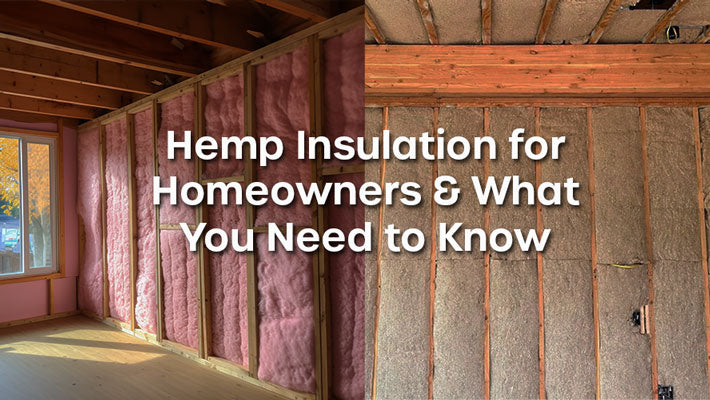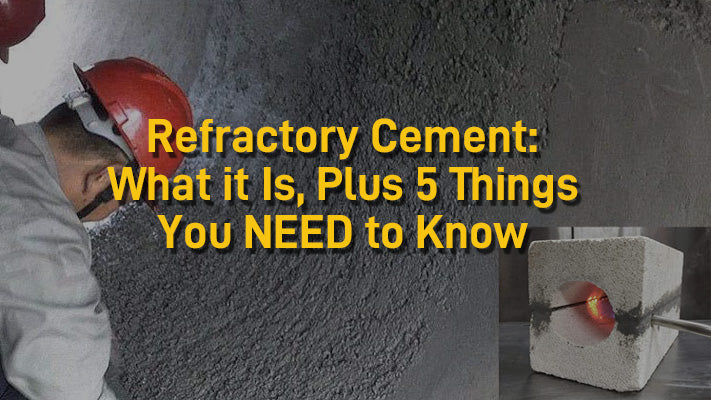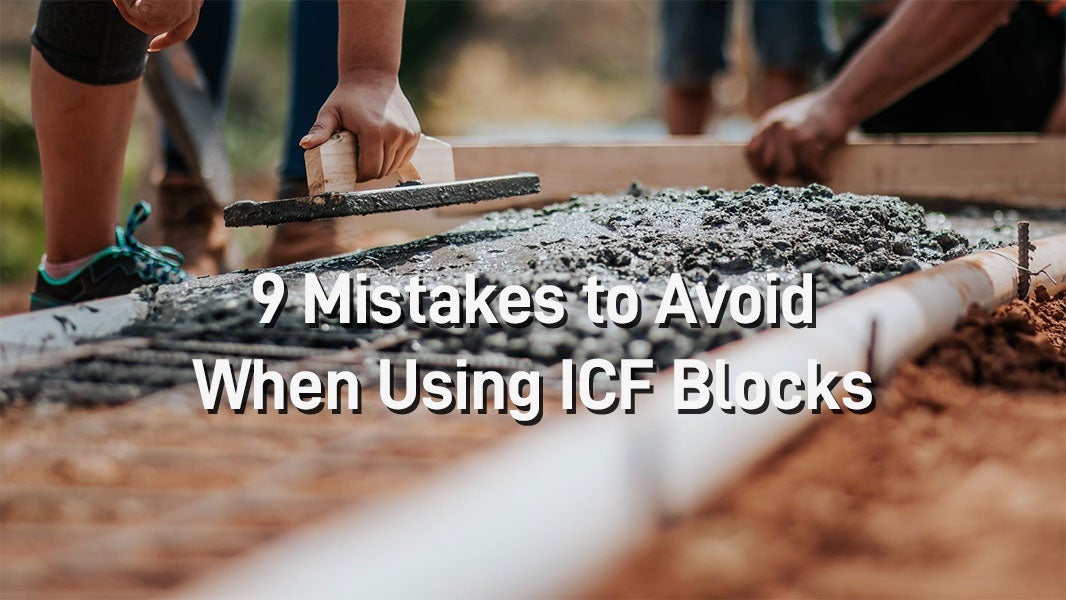Hemp Insulation for Homeowners 101
Everything You Need to Know
In the ever-evolving world of construction materials, homeowners and contractors are increasingly turning to sustainable and eco-friendly options. One such innovation that has gained significant attention is hemp fiber insulation batting. In this article, we'll delve into the advantages of choosing hemp insulation over traditional options, with a focus on ease of use, environmental impact, and performance.
Hemp fiber insulation boasts an impressive R-value of 3.7 per inch thick, demonstrating its excellent thermal resistance. It resists fungal microbial growth and, importantly, reacts favorably to moisture. Hemp fibers are breathable, allowing vapor to travel through the insulation, acting as a filter for condensation. This unique property makes hemp insulation a resilient and hygroscopic choice
Continue on to see how hemp fiber insulation compares to other forms of residential insulation.
Advantages of Hemp Fiber Insulation: A Closer Look
1. Ease of Use and Installation
Hemp fiber insulation sets itself apart with its user-friendly characteristics. Unlike traditional insulation materials, hemp insulation doesn't require gloves or a respirator during installation. This material can be touched with bare hands without causing skin irritation or producing harsh particles that could be ingested. The installation process becomes more accessible, making it an attractive choice for homeowners looking for hassle-free solutions.
2. Sustainable and Eco-Friendly
Hemp insulation goes beyond mere functionality; it's a carbon-negative product. During its production, hemp insulation pulls more carbon out of the atmosphere than it releases. This makes it a sustainable and environmentally friendly choice for those conscious of their ecological impact. Additionally, hemp insulation is resistant to pests, providing protection against rodents, termites, and ants. Its natural properties also make it resistant to bacteria and mold.
3. Health and Safety: Comparing with Traditional Options
When compared to traditional options like fiberglass insulation, hemp fiber insulation emerges as a healthier alternative. Fiberglass insulation poses health concerns, including skin irritation, itching, and respiratory issues. In contrast, hemp insulation allows for direct contact without these risks, contributing to a safer and more comfortable living environment.
Hemp vs. Fiberglass Insulation: How each stack up for residential use
hemp insulation offers several advantages over fiberglass insulation, including user-friendly installation, eco-friendliness, and health benefits. Its unique properties make it a compelling option for homeowners seeking a sustainable and high-performance insulation solution. The following are the most discussed points on using these insulations for residential use
It is rapidly becoming the insulation of choice for homeowners who want to use sustainable building products and reduce exposure to potentially harsh chemicals or irritants where they live.
Hemp vs. Fiberglass Insulation
Health and Safety:
Hemp Insulation: Hemp insulation is user-friendly and does not require gloves or a respirator during installation. It can be touched with bare hands without causing skin irritation or discomfort. Additionally, it does not produce harsh particles that can be ingested.
Fiberglass Insulation: Fiberglass insulation poses health concerns. Direct contact with fiberglass can cause skin irritation, itching, and redness. It is advisable to wear protective clothing and gloves, and the tiny glass fibers can cause discomfort if they come into contact with the skin or eyes.
Environmental Impact:
Hemp Insulation: Hemp insulation is a sustainable and eco-friendly building product. It is carbon-negative, meaning it pulls more carbon out of the atmosphere than it produces. It also has pest resistance, reducing the need for chemical treatments.
Fiberglass Insulation: Fiberglass insulation makes up a majority of the home insulation market and is classified as environmentally neutral . This is a generally good rating, but it falls behind as hemp insulation is carbon negative and is a renewable plant based resource.
Installation Process:
Hemp Insulation: The installation process for hemp insulation involves cutting the insulation bats, placing them between framing studs, and possibly adding a second layer for higher performance. Tools recommended include a grinder, table saw, utility knife, and tape measure. Easy installation process.
Fiberglass Insulation: Installing fiberglass insulation requires precautions such as wearing protective clothing and gloves. The tiny glass fibers can become airborne during installation, potentially causing respiratory irritation. Safety measures include using safety glasses or goggles. Installation is generally easy.
Performance and Effectiveness
Hemp Insulation: Hemp fiber insulation has an R-value of 3.7 per inch thick, providing excellent thermal resistance. It also resists fungal microbial growth and reacts favorably to moisture, contributing to a healthier indoor environment.
Fiberglass Insulation: Fiberglass insulation also has good thermal resistance (R-value), but it may pose challenges with moisture. Fiberglass is not as breathable as hemp insulation, and exposure to water will ruin traditional fiberglass batting as it is unable to wick moisture leading to potential mold buildup if untreated.
Hemp vs. Other Popular Residential Insulation types
- Mineral Wool Insulation:
Hemp Insulation: Hemp insulation provides a sustainable and eco-friendly alternative with ease of installation. It is not energy-intensive and has a lower environmental impact compared to mineral wool.
Mineral Wool: While fire-resistant and excellent for sound absorption, mineral wool has high embodied energy and may not be as environmentally friendly as hemp insulation. - Cellulose Insulation:
Hemp Insulation: Hemp insulation offers a user-friendly installation process and is resistant to pests, bacteria, and mold. It is a carbon-negative product, contributing to environmental sustainability.
Cellulose: Derived from recycled paper materials, cellulose insulation is environmentally friendly and has good thermal resistance. However, hemp insulation's resistance to pests and microbial growth may give it an edge. - Spray Foam Insulation:
Hemp Insulation: Hemp insulation is easy to handle and install, providing effective thermal insulation. It doesn't involve the use of chemicals commonly found in Spray Foam Insulation.
Spray Foam: While offering excellent thermal insulation and air leakage reduction, spray foam insulation involves the use of polyurethane chemicals, which may raise environmental and health concerns. - Polyurethane Foam:
Hemp Insulation: Hemp insulation provides excellent thermal resistance and reacts favorably to moisture, offering a sustainable and environmentally friendly option.
Polyurethane Foam: Polyurethane foam insulation is versatile but may raise concerns due to the chemicals involved in its composition. Hemp insulation's eco-friendly nature might make it a preferred choice.
When compared to traditional options like fiberglass insulation, hemp fiber insulation emerges as a healthier alternative. Fiberglass insulation poses health concerns, including skin irritation, itching, and respiratory issues. In contrast, hemp insulation allows for direct contact without these risks, contributing to a safer and more comfortable living environment.
Performance and Effectiveness of Hemp Insulation
Hemp insulation is on par with other other forms of insulation and has a good r-value of 3.7/inch of thickness. This material is also sought after for its density and acoustical performance. With a density of 2.18 lbs/ft² or 35 Kg/m³, hemp insulation serves as an effective sound dampener for acoustic applications.
Currently there is no fire-rated version of hemp insulation batting, however, US manufacturers are currently developing a fire rated hemp insulation product that will carry at least a Class-B rating further enabling its use in multi-family dwellings and commercial use buildings.
Hemp Insulation Studies
To further emphasize the credibility of hemp fiber insulation, we refer to studies such as "Applications and Properties of Hemp Stalk-Based Insulating Biomaterials for Buildings: Review" available here and "Study of an insulating hemp-based bio-material: mechanical, thermal and acoustic properties" found here.
Final Thoughts
The advantages of hemp fiber insulation extend far beyond its ease of use. From its sustainability to health benefits and superior performance, hemp insulation stands out as a compelling choice for homeowners. As the construction industry embraces eco-friendly alternatives, hemp insulation emerges as a frontrunner, offering a harmonious blend of functionality and environmental responsibility. Consider hemp insulation for your next project and make a lasting impact on your home and the planet.




